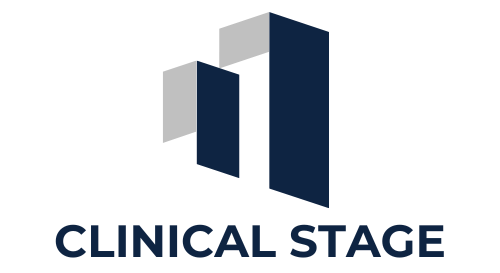Regulatory Pathways for Fast-Track Approvals
In the rapidly evolving landscape of medical research and drug development, timely access to new therapies is crucial for addressing urgent medical needs and improving patient outcomes. Traditional regulatory approval processes, while thorough and essential for ensuring safety and efficacy, can be lengthy and complex. To accelerate the availability of promising treatments, regulatory agencies worldwide have established various fast-track approval pathways.
These fast-track pathways are designed to expedite the review and approval of drugs that address serious conditions or fill an unmet medical need. By streamlining regulatory requirements and providing additional support and guidance to sponsors, these pathways help bring life-saving therapies to patients more quickly.
In this blog, we will explore the different regulatory pathways for fast-track approvals, examining the criteria, benefits, and challenges associated with each. We will also discuss the role of artificial intelligence (AI) and machine learning (ML) in optimizing the clinical trial processes that underpin these expedited pathways. Join us as we delve into the mechanisms that drive fast-track approvals and discover how innovative technologies are enhancing the efficiency and effectiveness of drug development in the modern era.
Understanding Fast-Track Approvals
Fast-track approval pathways are regulatory mechanisms designed to expedite the review and approval process for drugs that address serious conditions or fulfill unmet medical needs. These pathways are crucial for accelerating the availability of innovative treatments, especially in cases where delays can result in significant health consequences. Here, we will explore the key fast-track approval pathways, their criteria, and the benefits they offer.
Fast Track Designation
The Fast Track designation, implemented by the U.S. Food and Drug Administration (FDA), is intended to facilitate the development and expedite the review of drugs that treat serious conditions and fill an unmet medical need.
- Criteria for Eligibility:
- The drug must be intended to treat a serious condition.
- There must be nonclinical or clinical data demonstrating the potential to address unmet medical needs.
- Benefits:
- More frequent meetings and communications with the FDA to discuss the drug’s development plan and ensure collection of appropriate data needed to support drug approval.
- Eligibility for Accelerated Approval and Priority Review if relevant criteria are met.
- Rolling Review, allowing the sponsor to submit completed sections of the New Drug Application (NDA) or Biologics License Application (BLA) for review rather than waiting until every section of the application is completed.
Breakthrough Therapy Designation
The Breakthrough Therapy designation is granted to drugs that show substantial improvement over existing therapies for serious conditions based on preliminary clinical evidence.
- Criteria for Eligibility:
- The drug must be intended to treat a serious condition.
- Preliminary clinical evidence must indicate that the drug may demonstrate substantial improvement on one or more clinically significant endpoints over available therapies.
- Benefits:
- All Fast Track designation features, such as more frequent meetings and rolling review.
- Intensive guidance on an efficient drug development program, beginning as early as Phase 1.
- Organizational commitment involving senior managers from the FDA.
Accelerated Approval
Accelerated Approval allows drugs for serious conditions that fill an unmet medical need to be approved based on a surrogate endpoint, which is a marker, such as a laboratory measurement, that is thought to predict clinical benefit.
- Criteria for Eligibility:
- The drug must treat a serious condition.
- There must be a meaningful advantage over available therapies.
- Demonstration that the surrogate endpoint is reasonably likely to predict clinical benefit.
- Benefits:
- Approval based on surrogate endpoints can significantly shorten the time required before the drug is available to patients.
- Post-marketing confirmatory trials are required to verify the anticipated clinical benefit.
Priority Review
Priority Review designation is given to drugs that offer significant improvements in the treatment, diagnosis, or prevention of serious conditions compared to available therapies.
- Criteria for Eligibility:
- The drug must offer significant improvement in the safety or effectiveness of the treatment, diagnosis, or prevention of serious conditions.
- Benefits:
- The FDA aims to take action on a Priority Review application within six months, compared to ten months under standard review.
Regenerative Medicine Advanced Therapy (RMAT) Designation
The RMAT designation, part of the 21st Century Cures Act, is designed for regenerative medicine therapies, including cell therapies, therapeutic tissue engineering products, and combination products.
- Criteria for Eligibility:
- The therapy must be intended to treat, modify, reverse, or cure a serious condition.
- Preliminary clinical evidence must indicate the potential to address unmet medical needs.
- Benefits:
- All the benefits of the Fast Track and Breakthrough Therapy designations.
- Early interactions with the FDA to discuss potential surrogate or intermediate endpoints to support accelerated approval.
Global Perspectives on Fast-Track Approvals
Fast-track approval pathways are not unique to the FDA; similar mechanisms exist worldwide to expedite the approval of critical therapies:
- European Medicines Agency (EMA):
- Accelerated Assessment: Reduces the timeframe for the Committee for Medicinal Products for Human Use (CHMP) to review a marketing authorization application.
- PRIME (Priority Medicines) Scheme: Provides early and enhanced support to medicines that have the potential to address unmet medical needs.
- Japan’s Pharmaceuticals and Medical Devices Agency (PMDA):
- Sakigake Designation: Accelerates the approval process for innovative drugs, medical devices, and regenerative medicines that are first in the world to be developed.
- Health Canada:
- Priority Review: Provides expedited review of drug submissions for products that offer significant clinical benefit over existing therapies.
Challenges and Considerations in Fast-Track Approvals
While fast-track approval pathways offer significant benefits, they also present challenges and considerations:
- Balancing Speed with Thorough Evaluation: Ensuring that expedited reviews do not compromise the thorough evaluation of a drug’s safety and efficacy.
- Post-Marketing Surveillance: The need for robust post-marketing surveillance to monitor long-term safety and effectiveness, especially for drugs approved based on surrogate endpoints.
- Ethical Considerations: Managing patient expectations and ensuring informed consent, particularly when using accelerated approval pathways.
Fast-track approval pathways are essential for bringing life-saving therapies to patients more quickly. By understanding the different pathways and their benefits, as well as the challenges involved, stakeholders can navigate the regulatory landscape more effectively. In the next sections, we will delve into the role of AI and machine learning in optimizing clinical trial processes and outcomes, further enhancing the efficiency of these expedited pathways.
Key Regulatory Pathways for Fast-Track Approvals
Understanding the various regulatory pathways for fast-track approvals is crucial for navigating the complex landscape of drug development. Each pathway offers unique criteria and benefits designed to expedite the review and approval process for therapies addressing serious medical conditions or unmet needs. Below, we explore these key regulatory pathways in greater detail.
Fast Track Designation
The Fast Track designation is a program designed to facilitate the development and expedite the review of drugs intended to treat serious conditions and fill an unmet medical need.
- Criteria for Eligibility:
- The drug must be intended to treat a serious condition.
- Preliminary clinical data must demonstrate the drug’s potential to address unmet medical needs.
- Benefits:
- Frequent interactions with the FDA to discuss the drug’s development plan.
- Eligibility for Accelerated Approval and Priority Review if relevant criteria are met.
- Rolling Review, which allows sponsors to submit completed sections of the NDA or BLA as they are ready, rather than waiting for the entire application.
Breakthrough Therapy Designation
The Breakthrough Therapy designation is intended for drugs that may offer substantial improvements over existing therapies for serious conditions based on preliminary clinical evidence.
- Criteria for Eligibility:
- The drug must treat a serious condition.
- Preliminary clinical evidence must indicate that the drug may demonstrate substantial improvement on one or more clinically significant endpoints over available therapies.
- Benefits:
- All Fast Track designation benefits, including more frequent FDA meetings and Rolling Review.
- Intensive guidance from senior FDA managers on an efficient drug development program.
- Organizational commitment involving senior FDA leadership to expedite development.
Accelerated Approval
Accelerated Approval allows drugs for serious conditions that fill an unmet medical need to be approved based on a surrogate endpoint that is reasonably likely to predict clinical benefit.
- Criteria for Eligibility:
- The drug must treat a serious condition.
- There must be a meaningful advantage over available therapies.
- Use of surrogate endpoints that are reasonably likely to predict clinical benefit.
- Benefits:
- Approval based on surrogate or intermediate clinical endpoints.
- Requirement for post-marketing confirmatory trials to verify the anticipated clinical benefit.
Priority Review
Priority Review designation is granted to drugs that offer significant improvements in the treatment, diagnosis, or prevention of serious conditions compared to available therapies.
- Criteria for Eligibility:
- The drug must provide significant improvement in safety or effectiveness for serious conditions.
- Benefits:
- FDA aims to take action on a Priority Review application within six months, compared to the standard ten months.
Regenerative Medicine Advanced Therapy (RMAT) Designation
The RMAT designation, part of the 21st Century Cures Act, is designed for regenerative medicine therapies, including cell therapies, therapeutic tissue engineering products, and combination products.
- Criteria for Eligibility:
- The therapy must be intended to treat, modify, reverse, or cure a serious condition.
- Preliminary clinical evidence must indicate the potential to address unmet medical needs.
- Benefits:
- All benefits of the Fast Track and Breakthrough Therapy designations.
- Early interactions with the FDA to discuss potential surrogate or intermediate endpoints to support Accelerated Approval.
Global Perspectives on Fast-Track Approvals
Fast-track approval pathways are not unique to the FDA. Similar mechanisms exist worldwide to expedite the approval of critical therapies:
European Medicines Agency (EMA)
- Accelerated Assessment: This pathway reduces the timeframe for the Committee for Medicinal Products for Human Use (CHMP) to review a marketing authorization application, from 210 days to 150 days.
- PRIME (Priority Medicines) Scheme: The PRIME scheme provides early and enhanced support for medicines that offer a major therapeutic advantage over existing treatments or benefit patients without treatment options.
Japan’s Pharmaceuticals and Medical Devices Agency (PMDA)
- Sakigake Designation: The Sakigake designation accelerates the approval process for innovative drugs, medical devices, and regenerative medicines that are first in the world to be developed. It aims to reduce review times and promote early implementation in clinical settings.
Health Canada
- Priority Review: Health Canada’s Priority Review process accelerates the review of drug submissions for products that offer significant clinical benefit over existing therapies. The goal is to provide faster access to important new drugs for Canadian patients.
Challenges and Considerations in Fast-Track Approvals
While fast-track approval pathways offer significant benefits, they also present challenges and considerations that must be addressed:
- Balancing Speed with Thorough Evaluation: Ensuring that expedited reviews do not compromise the thorough evaluation of a drug’s safety and efficacy is crucial. Regulatory agencies must balance the need for speed with their responsibility to protect public health.
- Post-Marketing Surveillance: Drugs approved via fast-track pathways often rely on surrogate endpoints and require post-marketing studies to confirm their clinical benefit. Robust post-marketing surveillance is essential to monitor long-term safety and effectiveness.
- Ethical Considerations: Managing patient expectations and ensuring informed consent are critical, especially when using accelerated approval pathways. Patients must be fully aware of the potential risks and benefits of participating in fast-track clinical trials.
Fast-track approval pathways are essential tools for accelerating the development and availability of life-saving therapies. By understanding the different pathways and their benefits, as well as the challenges involved, stakeholders can navigate the regulatory landscape more effectively. In the following sections, we will explore the role of AI and machine learning in optimizing clinical trial processes and outcomes, further enhancing the efficiency of these expedited pathways. Get ready to discover how innovative technologies are transforming the future of drug development.
Strategies for Navigating Fast-Track Approvals
Navigating the fast-track approval pathways effectively requires a strategic approach that integrates early planning, proactive engagement with regulatory agencies, and leveraging advanced technologies. Below are key strategies to optimize the chances of successfully navigating fast-track approvals.
1. Early and Proactive Engagement with Regulators
Engaging with regulatory bodies early in the development process is crucial for understanding and meeting the requirements for fast-track designations:
- Pre-IND Meetings: Scheduling pre-Investigational New Drug (pre-IND) meetings with the FDA or other regulatory bodies can provide valuable insights into the expectations and requirements for the fast-track designation. These meetings help clarify the regulatory pathway, identify potential issues early, and establish a collaborative relationship with the agency.
- Regular Communication: Maintaining regular and open communication with regulatory agencies ensures that any concerns or questions are addressed promptly. This proactive approach can help prevent delays and ensure that the development plan remains on track.
2. Robust Clinical and Preclinical Data
Ensuring that the clinical and preclinical data is robust and comprehensive is essential for meeting the criteria for fast-track designations:
- Quality Data Collection: Implementing rigorous data collection methods and ensuring data integrity is paramount. High-quality data supports the evidence needed to demonstrate the drug’s potential to address unmet medical needs.
- Preliminary Clinical Evidence: Collecting and presenting strong preliminary clinical evidence that demonstrates substantial improvement over existing therapies is key. This evidence is critical for obtaining Breakthrough Therapy designation and other fast-track approvals.
3. Leveraging AI and Machine Learning
Utilizing artificial intelligence (AI) and machine learning (ML) can enhance various aspects of the clinical trial process, making it more efficient and effective:
- Predictive Analytics: AI-driven predictive analytics can identify the most promising patient populations, optimize trial designs, and forecast potential outcomes. This can improve the efficiency of patient recruitment and trial execution.
- Real-Time Monitoring: AI tools can continuously monitor trial data, providing real-time insights and enabling proactive adjustments to the trial protocol. This ensures that trials remain on track and that any issues are addressed swiftly.
- Automated Data Analysis: ML algorithms can automate the analysis of complex datasets, uncovering patterns and insights that might be missed by traditional methods. This can accelerate the decision-making process and support faster regulatory submissions.
4. Adaptive Trial Designs
Implementing adaptive trial designs can optimize resource utilization and improve the chances of success in fast-track approvals:
Seamless Phase Transitions: Adaptive designs allow for seamless transitions between trial phases, such as moving from Phase II to Phase III without pausing to reconfigure the study. This reduces downtime and accelerates the development timeline.- Response-Adaptive Randomization: Adjusting the probability of assigning participants to different treatment arms based on their responses can enhance the ethical aspect of trials and improve the efficiency of data collection.
5. Comprehensive Risk Management
Developing a comprehensive risk management plan is essential to navigate the uncertainties associated with fast-track approvals:
- Risk Assessment: Conducting thorough risk assessments to identify potential challenges and developing strategies to mitigate these risks is crucial. This includes addressing issues related to data integrity, patient safety, and regulatory compliance.
- Contingency Planning: Establishing contingency plans to handle unexpected issues, such as supply chain disruptions or adverse events, ensures that the trial can continue smoothly without significant delays.
6. Post-Marketing Commitments
Being prepared to meet post-marketing commitments is vital for drugs approved through accelerated pathways:
- Post-Marketing Studies: Planning and budgeting for post-marketing studies to confirm the drug’s clinical benefits is essential. These studies are often required as part of the approval process and are critical for ensuring long-term safety and efficacy.
- Surveillance Programs: Implementing robust pharmacovigilance and post-marketing surveillance programs to monitor the drug’s performance in the real world helps detect any rare or long-term adverse effects.
7. Patient and Stakeholder Engagement
Engaging with patients and other stakeholders throughout the development process can provide valuable insights and support:
- Patient Advocacy Groups: Collaborating with patient advocacy groups can enhance recruitment efforts, provide patient perspectives on trial design, and improve overall trial outcomes.
- Stakeholder Communication: Keeping all stakeholders informed about the trial’s progress, challenges, and milestones fosters transparency and trust, which are crucial for the trial’s success.
Successfully navigating fast-track approval pathways requires a strategic and well-coordinated approach. By engaging early with regulators, leveraging advanced technologies like AI and ML, implementing adaptive trial designs, and planning for post-marketing commitments, sponsors can enhance their chances of achieving fast-track approvals. Additionally, robust risk management and active stakeholder engagement are critical components of a successful strategy.
In the following sections, we will explore how AI and machine learning are specifically transforming clinical trial processes and outcomes, further enhancing the efficiency and effectiveness of fast-track approval pathways. Stay tuned to discover the cutting-edge technologies and methodologies that are shaping the future of drug development and regulatory science.
Case Studies and Success Stories
Understanding how fast-track approval pathways have successfully expedited the development and approval of critical therapies can provide valuable insights and inspiration for future drug development endeavors. Below are several case studies and success stories that highlight the impact of these regulatory pathways.
Case Study 1: Kalydeco (Ivacaftor) - Vertex Pharmaceuticals
Condition: Cystic Fibrosis (CF)
Pathway: Breakthrough Therapy Designation
Overview: Kalydeco is a groundbreaking treatment for cystic fibrosis, targeting a specific mutation in the CFTR gene. Before Kalydeco, treatments for CF primarily addressed symptoms rather than the underlying cause of the disease.
Impact of Breakthrough Therapy Designation:
- Accelerated Development: The Breakthrough Therapy designation enabled Vertex Pharmaceuticals to receive intensive guidance from the FDA, optimizing the clinical trial design and expediting the review process.
- Rapid Approval: Kalydeco was approved in January 2012, significantly ahead of the standard timeline for drug approvals.
- Patient Outcomes: Patients treated with Kalydeco showed substantial improvements in lung function, reduced pulmonary exacerbations, and improved weight gain, transforming the treatment landscape for cystic fibrosis.
Case Study 2: Imbruvica (Ibrutinib) - Pharmacyclics and Janssen Biotech
Condition: Various Blood Cancers (e.g., Mantle Cell Lymphoma, Chronic Lymphocytic Leukemia)
Pathway: Breakthrough Therapy Designation
Overview: Imbruvica is an oral Bruton's tyrosine kinase (BTK) inhibitor used to treat several types of blood cancers. It represents a significant advancement in targeted cancer therapy.
Impact of Breakthrough Therapy Designation:
- Intensive FDA Collaboration: The designation facilitated regular meetings and communications with the FDA, ensuring that the development plan was efficient and addressed regulatory requirements promptly.
- Multiple Indications: Imbruvica received approval for multiple indications in a relatively short period, thanks to the expedited review process.
- Patient Outcomes: The drug has provided a new treatment option for patients with certain types of blood cancers, offering improved survival rates and quality of life.
Case Study 3: Keytruda (Pembrolizumab) - Merck
Condition: Various Types of Cancer (e.g., Melanoma, Lung Cancer, Head and Neck Cancer)
Pathway: Breakthrough Therapy Designation and Accelerated Approval
Overview: Keytruda is a monoclonal antibody that works by blocking the PD-1/PD-L1 pathway, thereby boosting the immune system’s ability to fight cancer cells. It has been approved for a wide range of cancers.
Impact of Regulatory Pathways:
- Breakthrough Therapy Designation: Enabled Merck to expedite the development and review process for multiple cancer indications.
- Accelerated Approval: Keytruda was granted accelerated approval for several indications based on surrogate endpoints, allowing it to reach patients faster.
- Broad Impact: Keytruda has transformed the treatment landscape for various cancers, providing new hope for patients with advanced or metastatic cancer. It has been associated with prolonged survival and durable responses in many cases.
Case Study 4: Sovaldi (Sofosbuvir) - Gilead Sciences
Condition: Chronic Hepatitis C
Pathway: Priority Review and Breakthrough Therapy Designation
Overview: Sovaldi is a nucleotide analog inhibitor used to treat chronic hepatitis C virus (HCV) infection. It has significantly improved cure rates compared to previous treatments.
Impact of Regulatory Pathways:
- Priority Review: The FDA granted Priority Review to Sovaldi, shortening the review time and allowing for a quicker approval process.
- Breakthrough Therapy Designation: Provided Gilead Sciences with the opportunity to interact frequently with the FDA, ensuring a smooth and expedited development process.
- Patient Outcomes: Sovaldi has achieved cure rates exceeding 90% for HCV, revolutionizing the treatment of this chronic viral infection and reducing the burden of liver disease globally.
Special Case: Notable Labs
Notable Labs, a clinical-stage platform therapeutics company, leverages its proprietary Predictive Precision Medicines Platform (PPMP) to expedite the clinical development process for cancer treatments. The PPMP identifies and selects patients likely to respond to specific therapeutics, enabling faster and more targeted clinical trials. By focusing on clinically responsive patients, Notable aims to increase the efficiency and success rates of drug development, offering a de-risked in-licensing strategy that enhances both medical impact and commercial value.
Lessons Learned
These case studies demonstrate the transformative potential of fast-track approval pathways in bringing innovative therapies to market more quickly. Key takeaways include:
- Early Engagement with Regulators: Proactive and continuous engagement with regulatory agencies can streamline the development process and ensure that all regulatory requirements are met efficiently.
- Robust Preliminary Data: Strong preliminary clinical evidence is crucial for securing fast-track designations and supporting accelerated approvals.
- Adaptive Trial Designs: Implementing flexible and adaptive trial designs can optimize resource utilization and accelerate the development timeline.
- Post-Marketing Commitments: Preparing for and effectively managing post-marketing studies and surveillance are essential for maintaining the drug’s approval status and ensuring long-term safety and efficacy.
Fast-track approval pathways have proven to be invaluable in accelerating the development and availability of life-saving therapies. By understanding the strategies and success stories behind these expedited approvals, stakeholders can better navigate the regulatory landscape and bring new treatments to patients more efficiently.
In the next sections, we will delve deeper into how artificial intelligence (AI) and machine learning (ML) are revolutionizing clinical trial processes, further enhancing the efficiency and effectiveness of these fast-track pathways. Stay tuned to discover how cutting-edge technologies are shaping the future of drug development and regulatory science.
Future Prospects and Trends
The landscape of clinical trials and drug approvals is continuously evolving, driven by technological advancements, regulatory reforms, and an increasing emphasis on patient-centric approaches. Fast-track approval pathways are likely to become even more integral to drug development, supported by innovative technologies and collaborative efforts. Below, we explore several key trends and future prospects that will shape the future of fast-track approvals.
1. Increased Use of Artificial Intelligence and Machine Learning
Artificial intelligence (AI) and machine learning (ML) are set to revolutionize various aspects of clinical trials and regulatory processes:
- Predictive Analytics: AI and ML can analyze vast datasets to predict patient responses, identify optimal patient populations, and anticipate trial outcomes. This predictive capability can streamline patient recruitment and enhance trial design.
- Real-Time Data Monitoring: AI-powered tools can provide real-time monitoring of clinical trial data, identifying potential issues or adverse events early. This real-time analysis allows for timely interventions and adjustments to the trial protocol.
- Automated Data Analysis: ML algorithms can automate the analysis of complex datasets, accelerating the identification of patterns and insights. This can significantly reduce the time required for data analysis and support faster regulatory submissions.
2. Integration of Real-World Evidence (RWE)
The integration of real-world evidence (RWE) into clinical trials and regulatory decision-making is expected to grow:
- Enhanced Trial Design: RWE can inform trial design by providing insights into patient populations, treatment patterns, and real-world outcomes. This can lead to more relevant and efficient trials.
- Regulatory Acceptance: Regulatory agencies are increasingly recognizing the value of RWE in supporting drug approvals. As frameworks for RWE integration are refined, its use in fast-track approvals is likely to expand.
- Post-Marketing Surveillance: RWE will play a critical role in post-marketing surveillance, providing ongoing insights into the safety and efficacy of approved drugs in real-world settings.
3. Global Harmonization of Regulatory Standards
Efforts to harmonize regulatory standards across different regions will facilitate more efficient global drug development:
- International Collaboration: Regulatory agencies around the world are working together to harmonize requirements and streamline approval processes. Initiatives like the International Council for Harmonisation of Technical Requirements for Pharmaceuticals for Human Use (ICH) play a key role in these efforts.
- Mutual Recognition Agreements: Expanding mutual recognition agreements (MRAs) between countries can reduce duplication of efforts and expedite approvals for drugs developed under fast-track pathways.
- Global Trial Designs: Designing clinical trials with global regulatory requirements in mind can streamline the approval process across multiple regions, making new treatments available to patients worldwide more quickly.
4. Patient-Centric Approaches
Future clinical trials and drug development processes will increasingly prioritize patient-centric approaches:
- Patient Involvement: Engaging patients in the design and implementation of clinical trials can improve recruitment, retention, and adherence. Patient advisory boards and feedback mechanisms will become standard practice.
- Decentralized Trials: The rise of decentralized clinical trials, facilitated by telemedicine and digital health technologies, will make it easier for patients to participate in studies from their homes. This approach enhances accessibility and convenience, particularly for those in remote or underserved areas.
- Enhanced Communication: Improved communication tools and platforms will facilitate better interactions between patients, researchers, and regulatory bodies, ensuring that patient needs and concerns are addressed throughout the trial process.
5. Adoption of Blockchain Technology
Blockchain technology offers promising solutions for enhancing data integrity and transparency in clinical trials:
- Secure Data Management: Blockchain provides a decentralized and immutable ledger for recording trial data, ensuring data integrity and preventing tampering. This enhances trust in the data and the overall trial process.
- Transparent Auditing: Blockchain technology enables transparent auditing of clinical trial activities, from data collection to regulatory submissions. This can simplify compliance with regulatory requirements and improve accountability.
6. Expansion of Adaptive Trial Designs
Adaptive trial designs will become more prevalent, allowing for greater flexibility and efficiency in clinical trials:
- Seamless Phase Transitions: Adaptive designs facilitate seamless transitions between trial phases, reducing downtime and accelerating the development timeline.
- Response-Adaptive Randomization: Adjusting treatment allocation based on patient responses can improve the ethical aspects of trials and enhance data quality.
- Master Protocols: Master protocols, which evaluate multiple treatments or indications within a single overarching trial structure, will streamline the evaluation of new therapies and facilitate faster decision-making.
The future of fast-track approvals is bright, with numerous trends and innovations poised to transform the landscape of clinical trials and drug development. By embracing advanced technologies, integrating real-world evidence, harmonizing regulatory standards, and prioritizing patient-centric approaches, the clinical trial industry can enhance its ability to bring new treatments to market more efficiently and effectively.
As we move forward, stakeholders in the drug development process must stay informed about these trends and actively engage in shaping the future of clinical research. Collaboration among researchers, regulatory agencies, technology developers, and patient communities will be crucial in realizing the full potential of fast-track approval pathways and improving patient outcomes worldwide.
To stay updated on the latest trends and innovations in fast-track approvals and clinical trials, subscribe to our blog and join the conversation. If you are a healthcare professional or researcher, explore the opportunities presented by these advancements and consider how they can be integrated into your work. Together, we can shape the future of clinical research and improve outcomes for patients globally.










